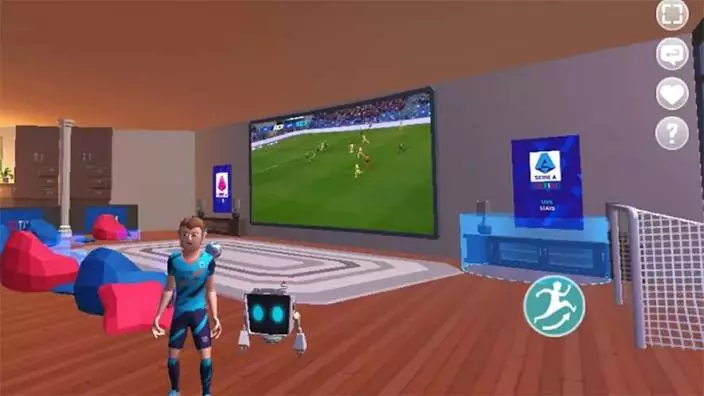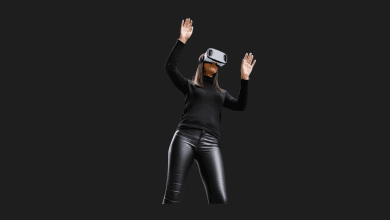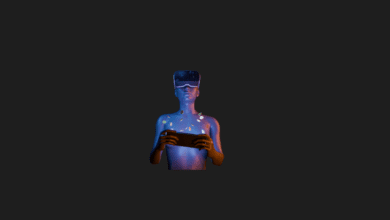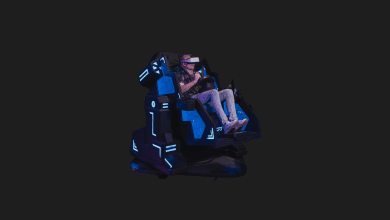Where will the Metaverse Be in The Sports Industry?

As a professional sports manager in the sports industry, delving into the Metaverse has become an essential aspect of my research agenda. In this context, I aim to provide details specific to the intersection of sports and the Metaverse.
In our current era, the significance of digitalization is evident across various fields, particularly in professional life. In the realm of sports, I find myself revisiting the importance of past projects centered on digitalization in sports, projects that I had conceptualized and implemented within sports structures.
Now, let’s explore the Metaverse, the trending topic in the world of technology and social media, where virtual reality merges with physical reality to create an alternative universe.
The common ground between sports and the Metaverse lies in their dynamic nature, and this exploration may be replaced by evolving dynamics.
The Metaverse, considered an advanced version of virtual reality, is often referred to as a fictional universe. It enables individuals to immerse themselves in the digital world rather than merely interacting with a digital realm. The potential within this digital universe includes performing various daily activities, such as work, travel, gaming, attending concerts, and shopping with cryptocurrencies, all through 3D avatars.
Now, how will the Metaverse integrate into the sports structure that captivates societies?
If you are curious about the connection between sports and the Metaverse, you are not alone. While the relationship between sports and the internet in the 1990s was not as intricate as it is today, sports continue to pique the interest of professionals, spectators, and the general public.
The first step involves recognizing that the Metaverse will fundamentally alter how people consume sports. In a virtual sports arena, fans can engage with their virtual avatars, purchase and don fan merchandise from their favorite clubs, socialize with other fans, experience the thrill of sports events, and watch matches. Importantly, geographical and physical barriers no longer exist. Fans from Germany can virtually gather at a Metaverse stadium to watch the Super Bowl. The use of multi-view camera technology enables spectators to enter the field, stroll alongside players, join soccer cheerleaders, and view the game from various perspectives. Finally, the Metaverse facilitates virtual gatherings, allowing individuals to be in the same room with friends, regardless of physical distances.
Where will we see first…?

The vision of the future may seem ambitious, but the Metaverse is making significant strides. Manchester City Football Club has taken a pioneering step by announcing plans to virtually recreate Etihad Stadium in the Metaverse.
This innovative move will enable football team fans to experience live matches without the need to physically enter the stadium. It’s evident that developments in this direction are already underway.
NFT

Manchester City’s arch-rival, Manchester United, has also ventured into the Metaverse. Through technology sponsorship, Manchester United has initiated the creation and marketing of digital fan products. These products, available for purchase as NFTs, can be collected by fans and potentially worn in the Metaverse in the future.
Sports Training Opportunities in Metaverse

The evolution of sports and the digital fan experience is just one aspect of the ongoing changes; the Metaverse is set to fundamentally transform sports education as well. While videos on platforms like YouTube have long been integral to sports education, especially for beginners or self-taught athletes, the Metaverse is poised to bring about significant advancements in this field.
Imagine having fitness coaches and top gym trainers appearing as holograms in your living room, providing training sessions even if they are located on the other side of the world. The possibilities here seem limitless. Companies in the cycling industry are also exploring ways to bring sports education into the Metaverse. Unlike well-known manufacturers, some companies are developing gamified bike platforms based on 3D worlds created in Unreal Engine. This makes the platform compatible with existing virtual worlds, allowing users to use their own bikes for races or navigate a digital parallel world, similar to Second Life.
However, there are challenges to the full implementation of the Metaverse, particularly in terms of sustainability and climate protection—an area I consistently focus on in my articles. The energy requirements for a large, globally accessible platform operating continuously must rely on blockchain technology, which, while providing a certain level of originality, demands a substantial amount of energy. Careful consideration and environmentally friendly production and consumption practices are essential for the sustainable development of such platforms.
Metaverse of the summary;

Experts predict that the Metaverse space will progressively expand and become a tangible reality for sports fans. At some point, the convergence of the Metaverse and the new sports experience is expected not only to materialize but also to become a natural state.
In my opinion, the most crucial aspect lies in the shared characteristic of ‘Sports and Metaverse,’ which revolves around the meeting of dynamic, constantly changing, and evolving structures.











